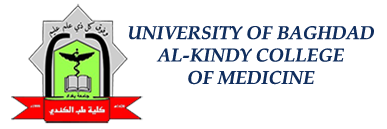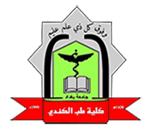
Student placement in all public colleges in Iraq is centrally managed by the Ministry of Higher Education and Scientific Research. Applicants for the undergraduate medical program at Alkindy College of Medicine must meet the following minimum requirements:
– They must hold a high school diploma or its equivalent from the Ministry of Higher Education, with an average score of at least 98%, and demonstrate a commitment to pursuing their studies in medicine (free of charge).
– Students are assigned to medical colleges based on the college’s capacity and an enrollment plan provided by the Ministry of Higher Education and Scientific Research. The college’s intake plan over the past three years has targeted 100 students, although Alkindy College of Medicine has accepted more than this number since 2006.
– Applicants must submit the required documents within a specified period.
– Applicants may also apply through the parallel education program, paying an annual tuition fee of 12 million IQD. For this pathway, the accepted GPA threshold is two points lower than the standard (96%).
Monitoring Student Progress and Attendance
Student progress is monitored by faculty advisors and the Registration Unit, with final grades submitted at the end of each academic year to the Examination Committee. Each student’s academic standing is reviewed to ensure they are in good academic standing and able to follow the curriculum effectively. Regular attendance is mandatory, and students must not exceed a 15% absence rate of total hours during the year. Full-time faculty members in the college are also available to provide academic counseling to students.
Student Interactions
At Alkindy College of Medicine, high-quality teaching and strong student interactions are emphasized. Faculty members maintain regular office hours, with most having an open-door policy. Supervisors of research project teams conduct weekly meetings with students, often serving as advisors for undergraduate research projects. Faculty also serve as advisors to professional student organizations, guiding students in attending regular meetings, offering mentorship, and accompanying them to regional and national conferences and competitions.
Student Advising
This area is managed by a designated committee comprising faculty members responsible for offering guidance, motivation, and assistance to students for their professional growth. Faculty members spend time with students outside the classroom, working with them on special projects and in undergraduate research activities. Advisory support is offered to students based on faculty expertise and as preferred by the students themselves. This service is provided through the Academic Advising Unit, where each faculty member is assigned to a group of seven students over six years, meeting them two hours weekly to discuss academic progress and address any other concerns.
Student Feedback
Throughout the academic year, student feedback is regularly collected regarding faculty, college infrastructure, and teaching processes. This is done either by the College Quality Assurance and Academic Performance Unit or the Curriculum Evaluation Committee, using a SWOT analysis model to assess performance based on student input.
Student Performance Evaluation
Student performance in each course is assessed by the faculty member, with a grade assigned for that subject. The number and types of graded assignments vary depending on the subject. Assessments usually include a combination of exams, quizzes, homework, and laboratory reports. Some subjects require projects or presentations, while certain tasks are evaluated by multiple faculty members or trainers.
Learning Outcomes
Learning and Practice
Upon completing the six-year, student-centered MBChB curriculum, Alkindy College of Medicine graduates should be able to:
– Demonstrate comprehensive knowledge of human anatomy and physiology and develop effective communication and clinical skills aligned with current medical standards.
– Exhibit efficient teamwork skills.
– Enhance leadership skills as they adopt preventive, promotive, and therapeutic approaches in medical practice.
Research
– Develop self-directed learning, analytical thinking, and problem-solving abilities, preparing them for professional responsibilities and lifelong community learning.
– Strengthen the capacity to conduct research and pursue postgraduate degrees.
Community Service and Social Responsibility
– Perform future medical duties with competence and integrity in any branch of the medical profession.
– Achieve excellence in social responsibility by understanding and meeting the community’s health needs and the healthcare delivery system requirements.
– Demonstrate appropriate behavioral standards toward patients, their families, colleagues, faculty members, and staff.

